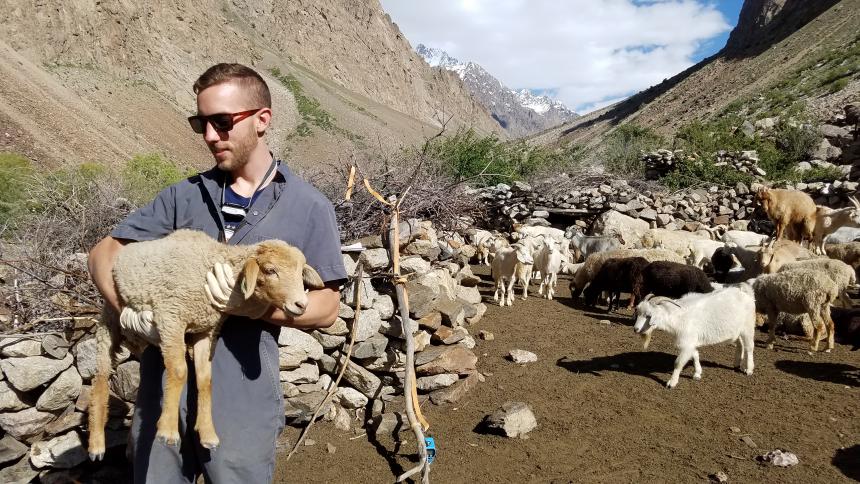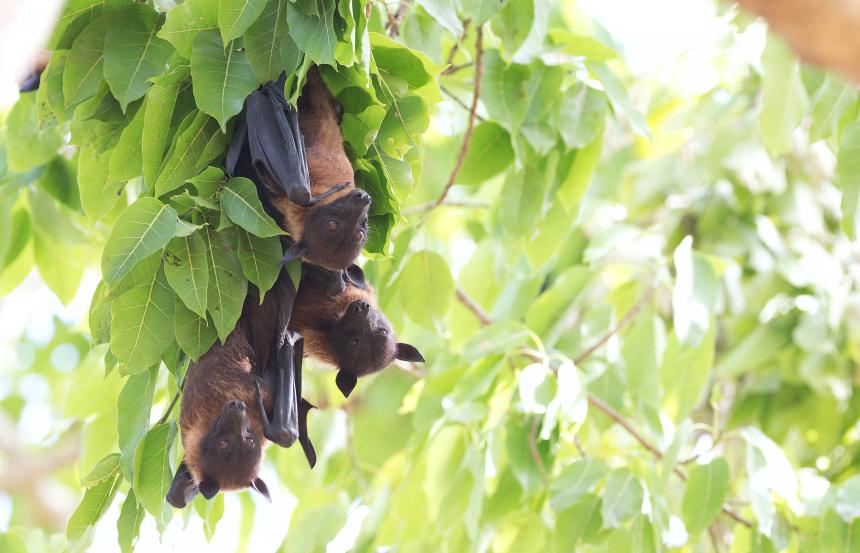In the News

July 06, 2023
At an altitude of 13,000 feet, I’m strangely captivated by the beads of water collected on the ceiling of my thin nylon shelter. An individual drop slowly swells and parts from its neighbors, plummeting down and crashing on the surface of my sleeping bag....

June 16, 2023
Experts from the Cornell Wildlife Health Center and the Wildlife Conservation Society have partnered on a new analysis focused on how pandemics can be prevented in the future. One basic solution may lie in a global taboo against harming/disturbing bats and their habitats.

For Your Information
June 05, 2023
In this new paper led by Cornell, researchers conclude that a global taboo is needed whereby humanity agrees to leave bats alone, let them have the habitats they need, and live undisturbed by humans to reduce the risk of another pandemic.

May 28, 2023
Cornell disease ecologist Dr. Raina Plowright has spent a decade studying how Hendra virus spills over from bats to horses and potentially people.

May 23, 2023
Humanity doesn't have to halt development to avoid pandemic risk, but scientists say a lot needs to change, including recognizing the risk around bat habitats and better assessing dangers related to development in bat lands.

May 18, 2023
The Cornell Wildlife Health Center partnered with the student-led Cornell Zoo and Wildlife Society to host Dr. Gladys Kalema-Zikusoka, founder of Conservation Through Public Health, as a special speaker at Cornell University.

May 16, 2023
First it jumped from bats to pigs. Then pigs gave it to people. Now the brain-damaging Nipah virus has found a way to leap from bats to humans without an intermediary host.

May 01, 2023
Kristina Ceres' extensive research, from cattle with tuberculosis to the critically endangered great hammerhead shark, led the Wildlife Disease Association to select Ceres for a Graduate Student Scholarship Award, which recognizes outstanding academic accomplishment and future potential in wildlife research.

March 30, 2023
In recognition of their outstanding scholarship and service, multiple members of the Cornell University College of Veterinary Medicine faculty have been granted named professorships, including Drs. Raina Plowright and Gary Whittaker.

March 28, 2023
In 2022, Peregrine “Peri” Wolff, DVM ‘84, was invited to serve on the Cornell University College of Veterinary Medicine Advisory Council and the Women’s Engagement & Philanthropy Initiative, supporting Cornell's focus on wildlife health and its connections to public, domestic animal and environmental health.
